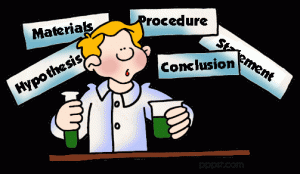A recent post from Scientific American discusses the sticky subject of science and its role in morality. The scientific method has spewed some seemingly immoral conclusions. How do deal with that? Here are some thoughts:
Researchers at the University of California Santa Barbara hypothesized that there is a deep-seated perception of science as a moral pursuit — its emphasis on truth-seeking, impartiality and rationality privileges collective well-being above all else. Their new study, published in the journal PLOSOne, argues that the association between science and morality is so ingrained that merely thinking about it can trigger more moral behavior.
…
The researchers found consistent results. Simply being primed with science-related thoughts increased a) adherence to moral norms, b) real-life future altruistic intentions, and c) altruistic behavior towards an anonymous other. The conceptual association between science and morality appears strong.
…These results might seem encouraging, particularly to fans of science. But one possible cost of assigning moral weight to science is the degree to which it distorts the way we respond to research conclusions. When faced with a finding that contradicts a cherished belief (e.g. a new study suggesting that humans have, or have not, contributed to global warming), we are more likely to question the integrity of the practitioner. If science is fundamentally moral, then how could it have arrived at such an offensive conclusion? Blame the messenger.
How can we correct this thought process? A greater emphasis on, and better understanding of, the method might do the trick. It’s significantly harder to deny the import of challenging findings when you have the tools necessary to evaluate the process by which scientists arrived at their results. That new study on global warming is tougher to dismiss when you know (and care enough to check) that the methods used are sound, regardless of what you think the authors’ motivations might be. In the absence of such knowledge, the virtue assigned to “science” might also be a motivational force for ideological distortion, the precise opposite of impartial truth-seeking.
Food for thought.

